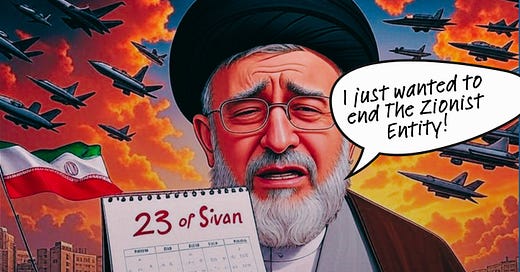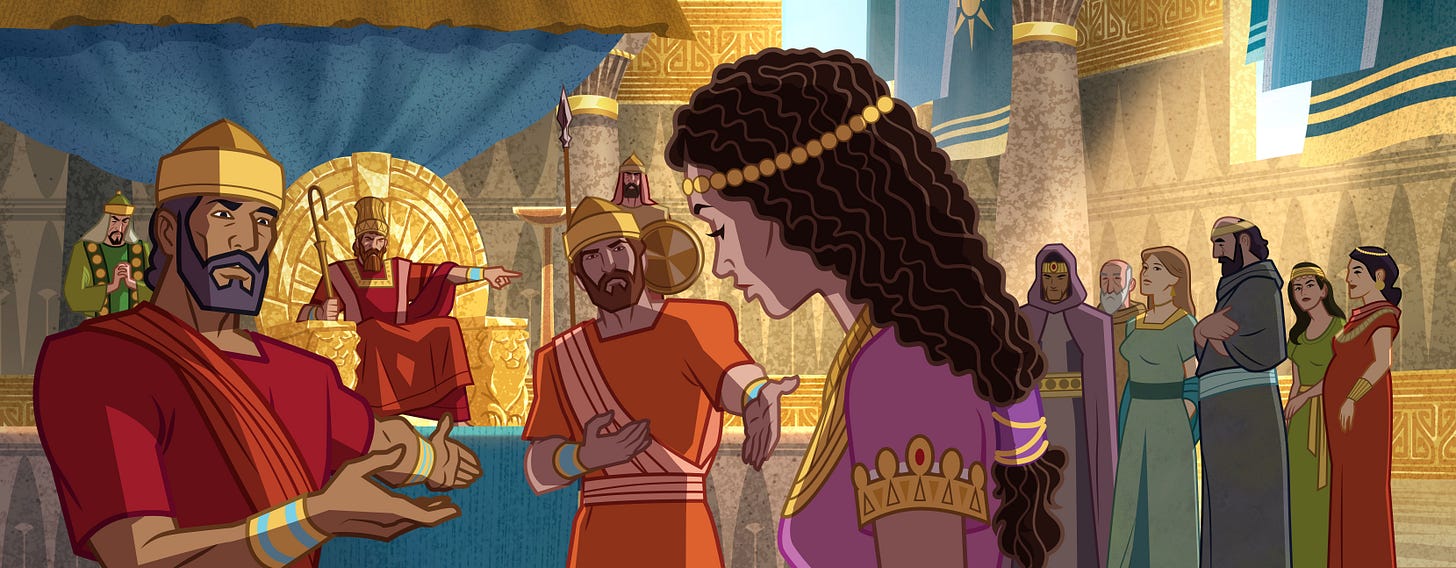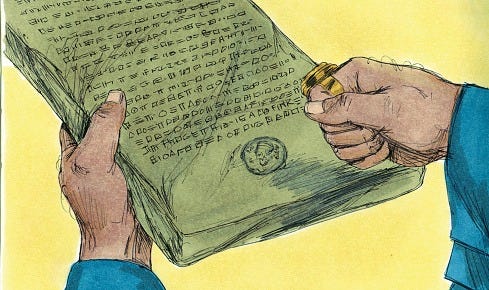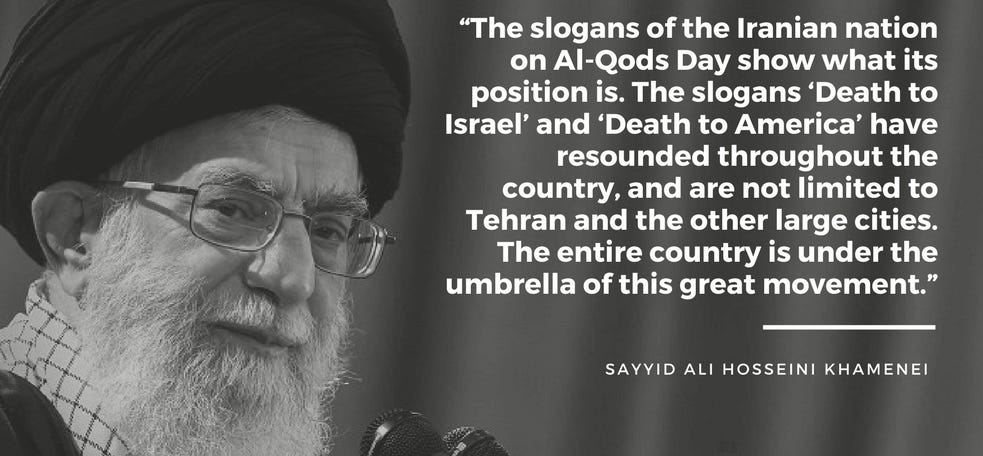From Esther and Mordechai to Israel’s IDF and Mossad
23rd of Sivan — Then, in 1947, and Now, it All Starts With The Right to Fight Back
Most people know the story of Purim — the joyous holiday celebrating how Queen Esther saved the Jewish people from destruction in ancient Persia. But the real turning point in that story often gets overlooked. It wasn’t on Purim itself, but months earlier — on the 23rd of Sivan — a date that still holds deep significance as the day the Jewish people were first granted the legal right to fight back.
Esther was a Jewish orphan living under the Persian Empire, in what is modern-day Iran, when she was suddenly crowned queen after King Achashverosh dismissed his first wife. Though she kept her Jewish identity secret at first, her new position soon placed her at the center of a deadly crisis. Haman, the king’s advisor, was furious that Esther’s cousin Mordechai refused to bow to him. Using his influence, Haman convinced the king to issue a royal decree ordering the annihilation of all Jews in the empire — men, women, children, young and old — and the seizure of their property. Sealed with the king’s ring, this decree could not be revoked.
Esther risked everything to reveal her Jewish identity and expose Haman’s plan. Haman was executed — but the decree remained in effect, as Persian law did not allow its cancellation. On the 23rd of Sivan, Esther and Mordechai received permission from the king to issue a new decree. This decree did not cancel the first but granted the Jews the legal right to defend themselves against attack. For the first time, they went from victims to fighters.
More than two millennia later, at a pivotal moment for the Jewish people, the spirit of Sivan 23 echoed once again.
The violence of the Nebi Musa riots exposed the vulnerability of the Jewish communities under British rule and protection. In response, just weeks later, on June 15, 1920 (29 Sivan 5680), the Jewish labor party Achdut HaAvoda passed a decisive resolution to formally establish the Haganah, as the official defense organization of the Yishuv — the Jewish community in Mandatory Palestine.
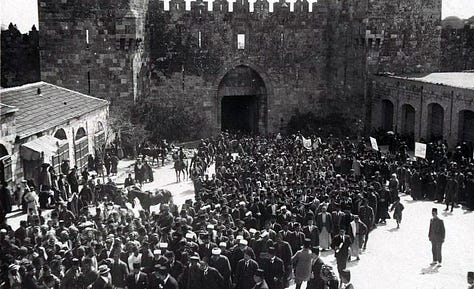
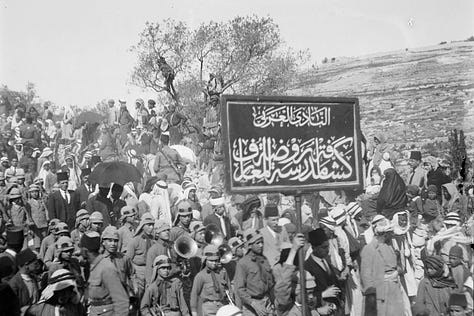
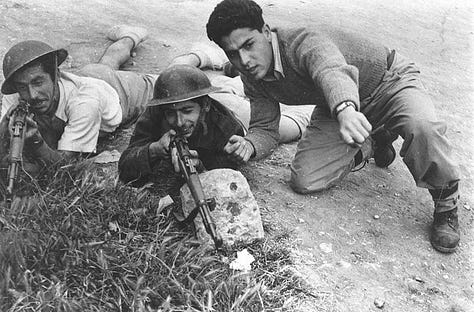
No longer would Jews passively hope for others to protect them. Like the decree given to the Jews on the 23rd of Sivan in ancient Persia, this was a defining moment of transition — from vulnerability to self-defense, from waiting to acting. This marked a turning point, Jewish leadership created a structured, centralized force to defend their communities and assert the right to protect themselves. It was a modern echo of the ancient empowerment of Sivan 23, when Esther and Mordechai secured a royal decree giving the Jews the right to defend their lives.
Twenty-seven years later, in June 1947, Jewish communities in Mandatory Palestine once again reached a critical decision. It was no longer just about securing local neighborhoods — it was time to fight for a sovereign future. After years of escalating violence and restrictions under British rule, Jewish defense organizations like the Haganah intensified their preparations, ready to protect their people and assert their right to national self-determination.
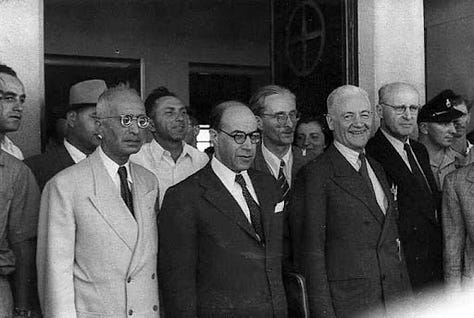
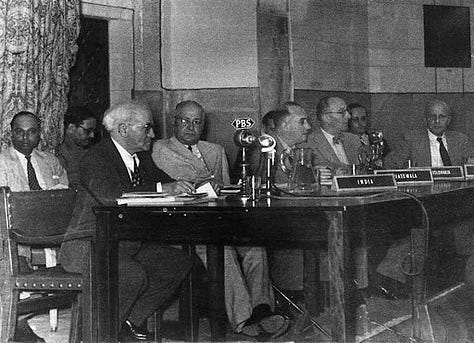
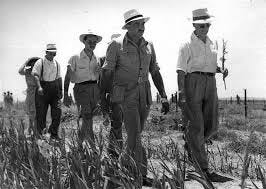
On June 16, 1947, the United Nations Special Committee on Palestine (UNSCOP) held its first meeting in Jerusalem. During this pivotal session, representatives of the Jewish Agency presented their vision for a Jewish state and emphasized the Jewish people’s right to self-defense and sovereignty. This meeting marked a crucial moment when Jewish leadership formally engaged with the international community about the future of Palestine and the legitimacy of Jewish self-defense, setting the stage for the UN Partition Plan later that year.
The Jewish community in Palestine was by then a highly organized and closely knit society, one that the British Royal Commission described as “a state within a state.” Proud of its achievements in self-government and cultural life, the Yishuv was determined to protect itself.
83. The Yishuv (Jewish community in Palestine) is thus a highly organized and closely-knit society which, partly on a basis of communal effort, has created a national life distinctive enough to merit the Royal Commission's title of "a State within a State." Proud of its own achievements in self-government and cultural life, it is sensitive to any apparent lack of appreciation of what it regards as its just and reasonable needs. Its initiative, purposefulness and self-confidence react strongly against a situation in which it finds itself under an "alien bureaucracy."78/ Its memories of the Arab rising of 1936-39, and more recent anti-Jewish pogroms in Middle Eastern countries, coupled with the immediate background of Hitlerism, keep it constantly vigilant and preoccupied with securing adequate defense for the National Home. - UN Special Committee on Palestine (UNSCOP) – Report 1947
The Arab revolts of 1936–1939, pogroms across the Middle East, and the trauma of the Holocaust made one thing clear: never again would Jews wait for others to save them. Just as in ancient Persia, where the Jews gained the legal right to fight back through royal decree, the Jewish people in British Mandate Palestine were reclaiming that right — this time through diplomatic channels, paving the way for the eventual rebirth of the Jewish state.
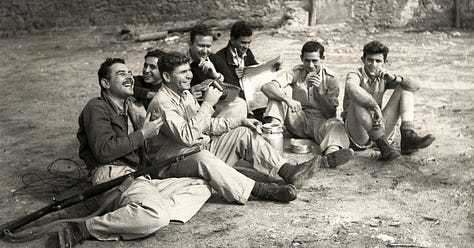
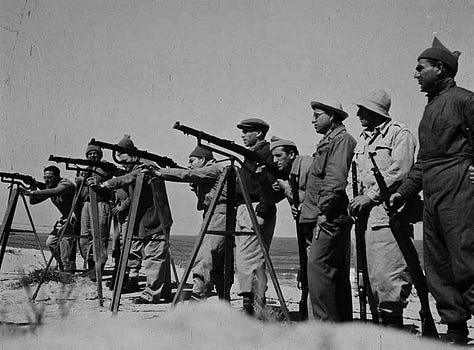
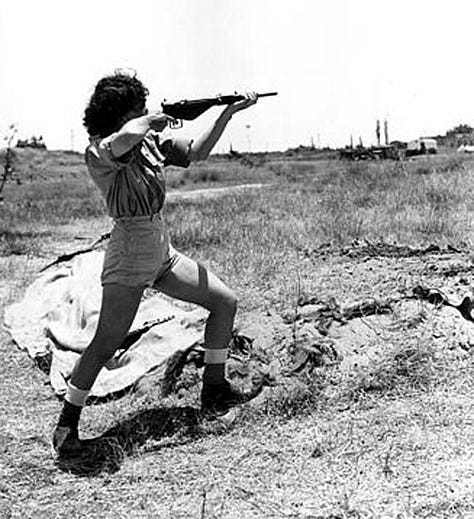
Today, on June 19, 2025 (23 Sivan 5785), the threat to Jewish existence is larger than ever, Israel has waited long enough for the world to act. The new Haman — the Supreme Leader of Iran — openly calls for the destruction of Israel and the Jewish people, openly chants “Death to America.” But this time, the Jewish people are no longer defenseless. They no longer need permission from empires, kings, or colonial powers. The Jews have a state, a powerful military, and the resolve to survive.
Right now, Israel is actively engaged in dismantling Iran’s nuclear and missile programs to ensure that the regime can never carry out its genocidal ambitions. This is not just a fight for Israel’s survival — it’s a fight for the security of the entire world. After 46 years of a genocidal regime stealing the future of the Iranian people and threatening global stability, Israel is standing in the breach.
The 23rd of Sivan reminds us that victory doesn’t arrive in one sweeping moment. Salvation begins before it is seen. It’s a quiet day — but a powerful one. It reminds us that sometimes the first victory is simply the right to fight back.

